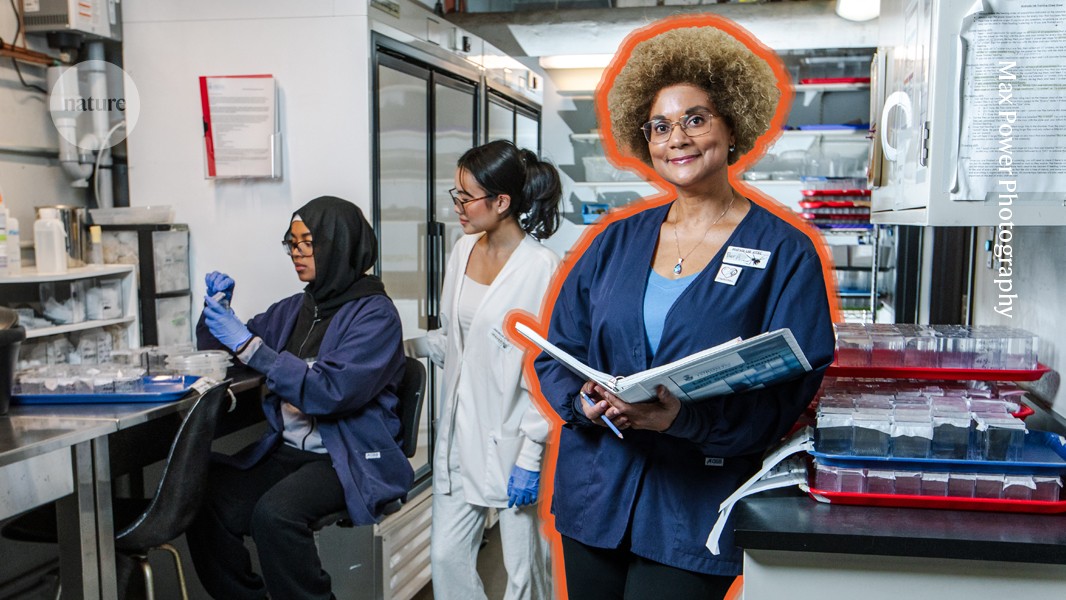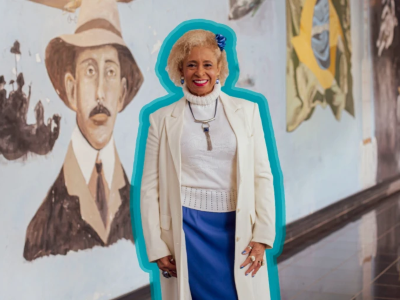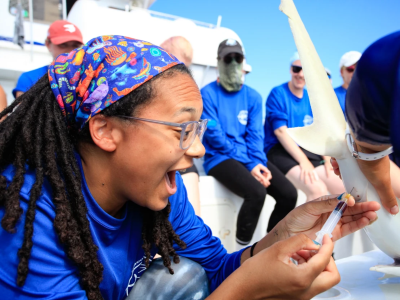Early in her career, evolutionary ecologist Maydianne Andrade was frequently asked to participate in equity work. As a Black woman in academia, she was initially reluctant, sensing that her presence on such committees was just ticking a box. At conference sessions on women and people of colour in science, despite often hearing anecdotes echoing her own experience, the lack of empirical data analysing collective experiences frustrated her.
Anecdotes didn’t shed light on solutions.
Then, about a decade ago, Andrade was challenged to take an implicit association test. The test revealed that she had a moderate to strong tendency to associate positive things with whiteness and negative things with Blackness. These results shook her, prompting her to take a deep dive into the social-science literature on discrimination and bias, and spurring her into advocacy.
‘Computing is a Black people’s thing’
Now, alongside her research career at the University of Toronto in Canada, where she studies the reproductive behaviour of black widow spiders (Latrodectus), she is co-founder and former president of the Canadian Black Scientists Network, and founder and co-chair of the Toronto Initiative for Diversity and Excellence (TIDE), a cross-disciplinary service group that supports equity and inclusion at her university, Canada’s largest. These groups engage with Canadian parliamentarians, organizations and university employees to stimulate sustained change. Last December, the Canadian Science Policy Centre, a non-profit organization, honoured Andrade with the Trailblazer Award for her exceptional leadership. Andrade spoke to Nature about her equity-seeking work.
What passion has driven you as a scientist?
I’ve always been a curious person. Animals are very sophisticated in the way that they take up environmental information and subsequently change their behaviour. I liked the idea that you can gather information and predict things about natural systems. I think I’m probably a control freak, because the idea of a massive equation that can predict an outcome is really attractive to me.
My passions are ecology, evolution, behaviour and their interactions. To rear black widow spiders for mating experiments, we typically have about 50,000 spiders in my laboratory at any given time. Their high-stakes mating can go on for hours, and sometimes we see males fight to the death for a female’s attention — something not often seen in nature.
Who has been your biggest influence and why?
I’ve had several mentors at various stages of my career. As an undergraduate student at Simon Fraser University in Burnaby, Canada, I was lucky to have the renowned behavioural ecologist Larry Dill teach my introductory biology class, starting each lecture with a research story. I later worked in his lab. When I was applying for graduate school, he was instrumental. He showed me the letter of recommendation that he wrote for me, which said that my biggest flaw was not knowing how good I was or could be. I don’t know if he intuitively knew that I had feelings of imposter syndrome or was aware of the effects of being a rare phenotype in this world of academic science, but to share that with me was incredibly valuable.
Why is diversity, equity, inclusion and anti-racism work important to you?
I have children. And as a young person, I didn’t understand how much of what I was experiencing in my career was unfair, biased or inappropriate. I understood it better later. When you experience discrimination or bias, you can always come up with a reason as to why it’s your fault. But, as I say to people outside equity-seeking groups, if you pick at a thread without recognizing the tapestry it’s in, you’re part of the problem. For people with talent who are subject to constant microaggressions, they’re going to be beaten down, they will think they’re not good enough and leave — and we lose their innovation with them.
How have you dealt with racism or discrimination in your personal and professional life?
Mostly I talk to family, friends and professional allies. They might say, “Yeah, that shouldn’t happen. I’m really sorry that it did.” Or, in a meeting, they’ll speak up and say, “Oh, I think that’s what she just said.” That can defuse the situation sometimes.
To be honest, a big part of coping comes from being a science nerd. I stare at my feet and at my spiders and a lot of the negative remarks go over my head or wash off my back. Or they did, until I started putting it all together.
What it’s like fighting racism and sexism in shark science
Now, in addition to my research, I do knowledge translation, which involves explaining to people what the literature suggests about bias and inclusion and how things can be improved with respect to the challenges we have in academia with properly assessing talent.
What I discovered is that data on bias alone are not enough for many scientists, because individuals don’t associate bias with themselves. That is a tendency that we have as human beings — we don’t want to think that the system we’re in is flawed. So, part of my work is finding the people who want to do something, but might not know what to do, and helping them to develop solutions and strategies.
Racism and discrimination affect you. But if you don’t put them behind you, it becomes impossible to move on, or you’re angry all the time. I won’t lie. Lately, I have been angry a lot. I’m just good at keeping it under wraps .
How has your work helped to move things forward?
The Canadian Black Scientists Network started in 2020, with 20 people in a virtual room. It is now a network of more than 1,000 people. Many are young trainees. We are establishing partnership programmes to help people find jobs, including in government ministries, and to encourage employers to hire Black employees.
In 2022, government grant agencies rolled out scholarship funding for Black scholars at the undergraduate, postgraduate and postdoctoral levels and have consulted with us on how to do so effectively. We helped to answer questions around identity and how to define ‘Black’ — not a trivial issue. We’ve also been part of a successful grant application to ensure that Black Canadians are included in a genomic database for a precision-medicine initiative; we’ve participated in a study about mortality inequalities of Black adults in Canada; and partnered with the Society for Canadian Women in Science and Technology to provide training to young Black people in science leadership, outreach and policy.
Young people have said to me, “I was about to give up. I’m the only one on my campus. I’m the only one in my department. I’ve never seen another person who looks like me at a conference.” And sometimes, even if everyone around you is supportive, it is exhausting to be that visible all the time, and to not have any role models who are demonstrating success.
That feedback, from people whom we’ve inspired to not give up, has been incredibly rewarding.




